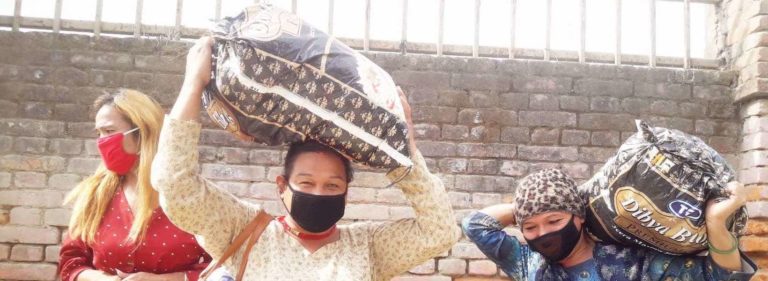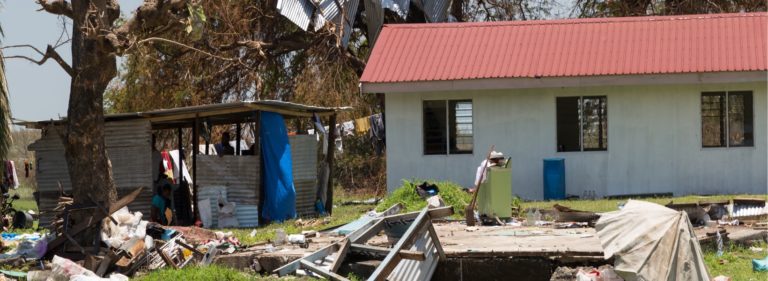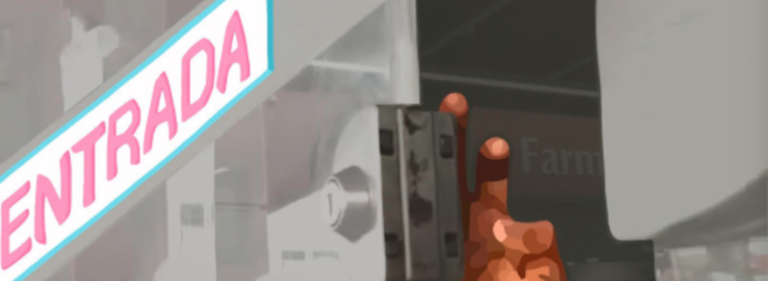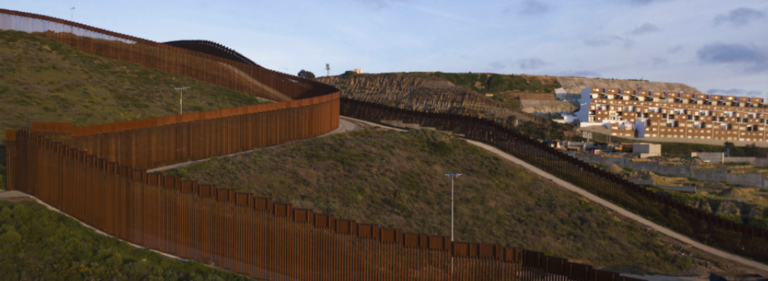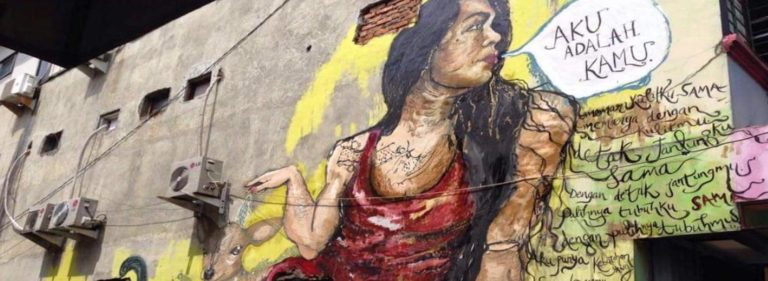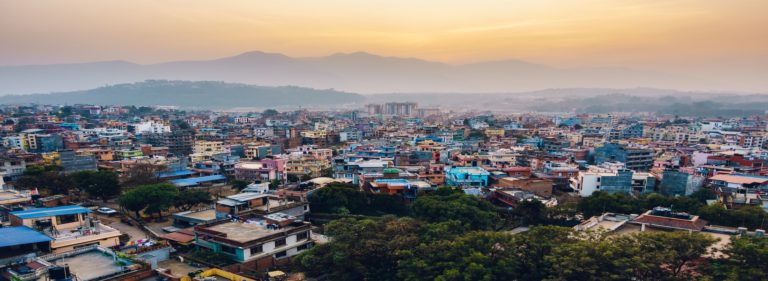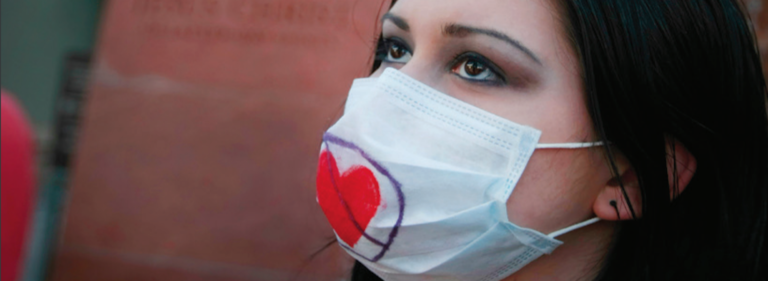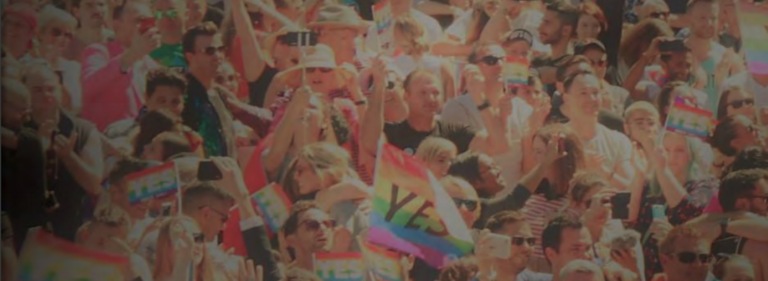One of our diverse SOGIESC #RealLifeHeroes is Ajeng Kartika, one of the founders of Esbisquet. Esbisquet, a collective of LBQ & Trans community at Palangkaraya (Central Borneo, Indonesia), was established in respond to the COVID-19 pandemic. Esbisquet envisions that their basic needs (food, shelter, WASH and livelihood) will be fulfilled and they will be able to adapt and bounce back from the negative impacts of the COVID-19 pandemic. At present, apart from COVID-19 response, Esbisquet is active in advocacy, networking and community empowerment.
What name would you like us to use for you? Ajeng Kartika
What pronoun do we use for you? She/ Ms
Where are you based? Palangkaraya, Kalimantan Tengah (Central Borneo), Indonesia
What is the name of the organisation you work with?
I am active at Esbisquet. As a community focal point, I encourage the LBQ & Trans community to learn the importance of being together and being organized and I encourage everyone to learn about their human rights.
What is your connection to Edge Effect? (what project / how are you involved?)
I was involved with Edge Effect in a WASH project at eastern Indonesia since 2018. The project aims to assure that the public WASH facilities are safe, accessible and inclusive for everyone, including LGBTIQ+ community. At that time, I was a staff at Arus Pelangi and I helped the project as a community organizer. Last year I left Arus Pelangi and I moved to Central Kalimantan. I continue to be part of the community organizer team for the project until now.
Is there a particular area that you work in? (e.g. HIV/ Human Rights, WASH)
I started as an HIV & AIDS field officer at Bogor (West Java), so I basically have a good understanding and experience of the HIV & AIDS issue. The community here (at Central Kalimantan), especially Transpuan*, do not have much information on HIV & AIDS so this is something that they need. Friends at Esbisquet on the other hand are learning about human rights. Due to the pandemic, I also shared about learnings from my experience in our project in eastern Indonesia on water, sanitation, and hygiene. There is not much differences between my experience with the community here and the knowledge I learned from our project with Edge Effect had much advantages for me, as it goes beyond human rights.
How did you become involved in LGBTIQ+ activism?
Back in the days when I was active as a sex worker, I experienced so much violence. It was also difficult for me to access public services such as making a government ID or getting any government support at all because of my identity as a Transpuan. I did not know whom to go to for help. Back then I realized, how can they (other people) be like that while I could not?
I ‘felt’ into activism after I attended Transchool in 2014. Transchool is an alternative school for young Transpuan living at Jakarta and its surrounding cities. Before that I was not aware on the existence of any LGBTIQ+ rights organizations. I learned and I understood more through Transchool and I became more passionate.
I also realized that there were not many people who can help our friends, not many that really focused to fight for our rights, so no matter how battered I was, I just kept on going, my friends kept me going. Then I joined Arus Pelangi and a few other organizations. I understood even more.
What inspired you to continue working for social change?
The water here stinks, there are many open-drainages and the rubbish are everywhere. When I personally talk about inspiration and social transformation, I start from the smallest things. For example, my neighbour has so many cats, so the cats’ litter is our topic of conversation. Our experience at eastern Indonesia taught us to start from our smallest circles. For example, there are rubbish piles in front of our house, then we encourage our neighbourhood to dump the rubbish to the landfill, or we burn it together (that’s the practice here).
I also see many friends, including myself, who have very minimum knowledge and education. So, I also think that it’s important for all of us to smash those who think they are so good. I also realized and I still do until this very second, that there are not many opportunities for us because of our minimum knowledge and education, so let’s reclaim those spaces. Those who inspire are those of us who are weak, those of us who are considered uneducated, those of us who are not given spaces, those of us who are equally willing to learn. So, let’s reclaim those power-spaces.
How long have you been involved in this work?
In 2014 I started to understand because I attended Transchool. Prior to that in 2010, I met with Kampung Belajar, an HIV & AIDS group in Bogor. I had the passion, but I did not know the how. I felt it was unfair when I had to give my money to the street thugs or when I was arrested by the Satpol PP (public decency police). I fought then, but without any strategy, just passion. After 2014, I got a lot of trainings and information, I understood better about strategies, steps, processes, etc.
What are some of the approaches and methods you use in your LGBTIQ+ activism?
Our friends often see us as the “angel of salvation”, especially those who had very minimum information. We often forget that we are just like them. My approach is becoming them, empathy, we are the same.
Then we became friends because we had the same fate, without bringing any of my background in Transchool or other trainings. So, the approach starts by having the same fate. For example, when I had no connection in one area (ie. eastern Indonesia), I looked for the community focal points, I actively connected with them through social media, we became offline friends and we learned that we are the same.
Apart from sharing common fate, we often have limited or no gathering spaces at all. So, the other approach is to create safe spaces to gather and to share information. We had BBQ as we shared with each other. Back then we could get together wherever we want without fear, but now those spaces are very limited. We miss our gathering spaces and I created those gathering and safe spaces as an approach.
What are some of the challenges you face in your LGBTIQ+ activism?
The challenges are not just from the outside (external). I know when we talk about changes, we can’t do it alone. We need our friends and networks. Yet one of the biggest challenges until this very second is that our friends in some areas have very limited understanding. When we talk about human rights, for example harassment, many do not understand what that is. We saw a friend at eastern Indonesia who was harassed in front of a supermarket by her uncle. He was teasing her and was asking her for sex, she declined yet she was permissive. She was not annoyed. She took that situation for granted. I wouldn’t know what would happen if I was not there. This is a common situation across the communities. Many even blame themselves. So, our biggest homework is not just external but our internal community and the lack of equal access to information and education for them to accept themselves. How can we step up and encourage changes at public spaces (externally) when we are not strong enough? Many cases happen to our friends because of their lack of education and information.
What do you like best about being an activist?
I am happy because I now have a lot of friends and families. I used to be a homey girl who was afraid that I would not be able to eat if I leave the house. Now, I have so many friends and families. I am no longer afraid. I also have much understanding and I know better on how I would walk my life to fight for my rights, to share with the others. That’s my spirit.
If there was one change that you would like to see for LGBTIQ+ people, what would that change be?
Everyone has equal opportunities. On everything, because, so far, based on my experience in the community, when we talk about equal opportunities, a lot of friends do not get the opportunity to access information. There is no equal opportunity to develop as there are connections and privileges at play. We talk about equality and inclusion externally, often without realizing that our very own selves have not been upholding it. We often want to be prioritized and we feel that we are very special, and often when we voice-out and we get the spaces, we forget to share it with the others. I also feel that the past few years we surrendered. We are waiting for spaces to be given to us. So, when we talk about equality, we just get the leftovers.
I dream that more friends will be active, we voice ourselves to claim spaces without putting ourselves into boxes. We face the future as we are all human. We move together based on our humanity.
What are ways can humanitarian and development organisations support LGBTIQ+ inclusion?
Actually, friends at those organizations are very similar to the society at large. They are not radical. They are aware of our rights, but they just don’t care. Our friends (LGBTIQ+ community) are often use as objects/ beneficiaries, not as a team who are learning together. So, when there is an inclusion project, they gave us our portion then they walked away as if they had done good. So, this is not about organization, this is about people’s values. There are people who join organizations because of humanity, their values stay wherever they are. But there are also people who work without internalizing the values. There are many people like that, and they often confuse me. “Do you speak on behalf of yourselves or your organizations?” Maybe their organizations have values, but the people inside focus on working, according to their mandate, SOPs, without any values at tall. So, in the end, the community just became objects, as beneficiaries.
My point is, it’s really important for us to collaborate equally and learn together as a team.
* Transpuan is collective identity that has gained popularity over recent years. Transpuan community used this identity to free themselves from degrading identities that were assigned by people outside the community, including Banci, Bencong, Wadam (Wanita-Adam), Waria (Wanita-Pria); to free themselves from man-related terms such as Pria and Adam, and to free themselves from the degrading definition of the woman-identity “Wanita” (wani-toto; which translates to “can be arranged”) and use “Perempuan” as a woman-identity alongside the feminist movement (Arus Pelangi 2019, Modul Pendidikan Dasar SOGIESC/ SOGIESC basic training module).





